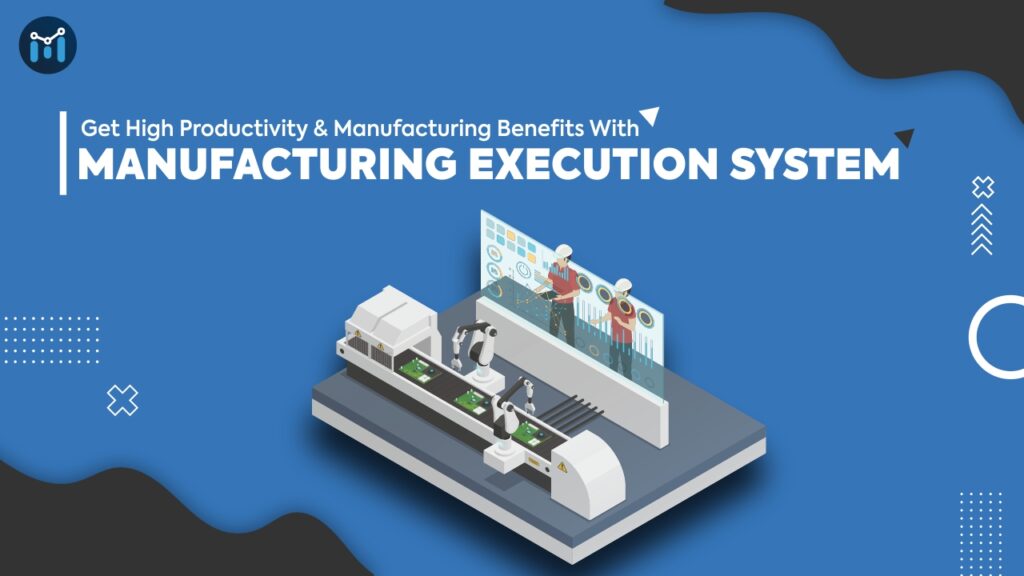Heavy engineering and large machineries are very complex objects. In a final product, typically there are hundreds even thousands of components. Most manufacturers source these components from other manufacturers. These components are then assembled in an assembly line. Also, the final product is very expensive and volumes of such final heavy machinery or equipment is high. These are Made To Order and the final customer wants customization to suit their needs. For example, a company manufacturing heavy crushers in mining industries would need more than 1000 SKUs. The final configuration of these crushers would depend on the type of mining (terrain, material to be crushed) etc. Hence here the task of MES or Manufacturing Execution System for Heavy Engineering Industry is to be discussed since they are budget friendly and give the best outcome of the resources from the factory.
Manufacturing heavy equipment is not an easy task. Very few manufacturers manage the demand of high number of SKUs for low number of final products. So what are the challenges of such kind of manufacturing:
- High number of SKUs: This means that are there needs to be many suppliers. Creating an ecosystem of such suppliers would be a challenge as some of them would be in the vicinity whereas some could even be imported from international markets.
- Managing availability of WIPs and RM: since a large number of components are getting assembled, it is important that these suppliers supply such components in time for the final assembly. Procurement team need to release Purchase Orders in time. Each SKU has an Economic Order Quantity and a lead time to order. These variables need to be accommodated in the purchase cycle that would impact the manufacturing cycle. While a Manufacturing Execution System does not deal with the purchase systems, it gives early signals to the ERP on material consumption and production. Such signals can be leveraged to ensure the manufacturing cycles do not impact.
- Critical To Quality: such heavy machineries are transported and used in different parts of the world. It is impossible to the manufacturing location for any repair. In case of a part or system breakdown, engineer needs to go and fix the machinery at the site . Hence it is important that quality is ensured. Manufactured items have a long life and can work without any disruption. To ensure this during the manufacturing process, the design team lays down certain Critical To Quality (CTG) parameters. These CTQ are recorded during the manufacturing process. Earlier these CTQ parameters were recorded in registers or loose sheets. However in the Era of Industry 4.0, there needs to be a manufacturing Execution system, that should do the data recording and retrieval process.
- Equipment Drawings: In complex assembly processes, it is important that shopfloor engineer and operator has availability of different Drawings that could aid her during the assembly process. These drawings could be different based on customer needs and hence there is a chance that if such documents are not properly organized, the shopfloor worker gets confused and builds the wrong product. A good Manufacturing Execution System should have the provision to upload these designs and then make it available to the shopfloor operator through handheld devices.
A Manufacturing Execution System (MES) plays a significant role in the heavy equipment industry by providing comprehensive control and optimization of manufacturing processes. Here are some key aspects of MES in the heavy engineering industry:
Production Planning and Scheduling: MES helps in creating optimized production plans and schedules based on available resources, capacities, and customer requirements. It considers factors such as equipment availability, material availability, and workforce capacity to ensure efficient production operations.
Shop Floor Control: MES provides real-time visibility and control over shop floor activities. It tracks work orders, monitors machine status, and captures real-time data from sensors and equipment. This enables effective monitoring and control of production processes, ensuring adherence to schedules and efficient resource utilization.
Quality Management: Heavy engineering industries require stringent quality control measures to ensure the reliability and safety of their products. MES systems facilitate quality management by enforcing quality control procedures, recording inspection results, and tracking non-conformances. It helps in identifying and resolving quality issues promptly to minimize rework, scrap, and potential safety hazards.
Inventory and Material Management: MES helps in managing complex inventories of raw materials, components, and finished goods. It tracks inventory levels, facilitates material traceability, and provides visibility into material availability. This enables efficient inventory management, reduces stock-outs, and streamlines supply chain operations.
You can get your doubts more clear in our post on Challenges of Implementing MES- How to Overcome Them which will highlight major points about MES.
https://www.ibef.org/industry/engineering-india
[/vc_column][/vc_row][vc_column_inner width=”1/2″][vc_single_image image=”113314″ img_size=”large” alignment=”center” css=”.vc_custom_1684412013980{margin-top: 20px !important;}”][/vc_column_inner][vc_column_inner width=”1/2″][vc_column_text css=”.vc_custom_1681822055502{margin-top: 40px !important;}”]Needs of a heavy equipment manufacturer are many and it would be difficult to list all of them in this article. However, based on discussions with many manufacturers, we feel that the above needs to be the most important. ManufApp’s Manufacturing Execution System is already deployed at many such manufacturers. ManufApp believes that such kind of complex assembly processes should be done through a good execution system.[/vc_column_text][/vc_column_inner]





